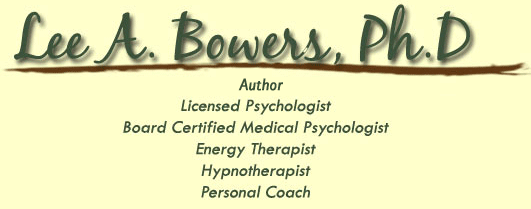Deciphering the Alphabet Soup of Energy Therapies
NET, EFT, NAET, JMT, NMT, TFT and I could go on and on. In the last decade, there has been a proliferation of energy therapies claiming to effectively treat and even eliminate everything from anxiety and depression to severe auto immune disorders. How is the consuming public to know what works and what doesn�t, how to select a therapy, and how to find the right practitioner?First, a little background is in order. After Dr. George Goodheart developed Applied Kinesiology (commonly known as muscle testing) in the 1960�s, practitioners had a new, non-invasive, and useful tool for assessing what was happening in the body/mind. About the same time, people in the Western world were getting their first exposure to Chinese Medicine, especially acupuncture. Most of the energy therapies began as a combination of the two - kinesiology and meridian based protocols.
Although the premises behind these therapies is essentially the same in all of them - the idea that an impedance in the flow of energy allows problems to develop or continue, some of the therapies were developed by psychologists and other mental health professionals to address primarily emotional symptoms, while others were developed by chiropractors and acupuncturists to address primarily physical symptoms.
So the first question a consumer might ask themselves is, �what do I want to accomplish with energy therapies�? Even though all of these therapies can theoretically treat physical and emotional problems, EFT, TAT, TFT, Matrix work, BSFF, are primarily focused on emotional distress and NET, NAET, BioSet, JMT, and NMT primarily address physical symptoms.
Another consideration is how much self treatment do you hope to do? Several of the above therapies are easy for the lay person to learn to use in self-help fashion, but others are much too complicated for that.
The question, �what protocol will work best for me?� is a much more difficult one to answer. Like more conventional treatment, when it comes to energy therapies, there�s nothing that works for everyone. However, there are some protocols that seem to consistently work better than others for certain types of problems. In general, I�ve found the newer therapies tend to work better because they have been built on the successes of earlier ones. For this reason, I�d suggest asking a potential practitioner what the latest modalities and updates they have been trained in. Are they keeping up with the latest updates and refinements?
Any individual may still find one of the older therapies best for them. This is where practitioner experience and skill is essential. I would suggest finding a practitioner who employs many different techniques, in order to avoid the �if all you have is a hammer, everything looks like a nail� phenomena. A skilled clinician will be able to assess what is most likely to give you the best results, rather than try to fit any problem into the one protocol they know.
Finally, there�s nothing quite as good as a referral from someone who has been happy working with a particular practitioner. No one is right for everyone, but asking some basic questions will help you find the person and technique to assure you a good experience with energy medicine.
Dr. Bowers in a PA Licensed Psychologist with a specialty in Health Psychology. She uses most of the therapies referred to above in her practice. To learn more about Lee, you can go to www.drleebowers.com or call her at: 610-520-0443.

